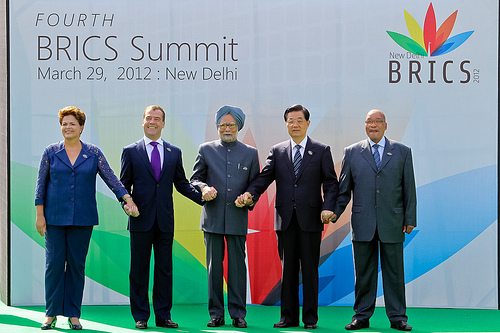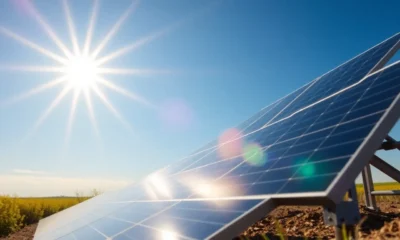

Economy
BRICS: renewable energy and sustainability in emerging economies
All this week on BBC Radio 4, the economist Jim O’Neill looked at the new set of emerging economies. He’s calling them MINT: Mexico, Indonesia, Nigeria and Turkey. Before them though came BRICS: Brazil, Russia, India, China and South Africa.
In 2011, BRICS had a combined GDP of $16.039 trillion, especially thanks to China and Russia, the world’s second and fifth largest economies respectively.
Their fast-growing wealth often emerges from a specific sector or set of reforms: Russia has capitalised its huge oil and gas resources, China reformed its economy in 1978, India liberalised its economy starting from 1991, Brazil has expanded its agribusiness and South Africa benefitted from mining and tourism.
These countries have become key players on the world’s economic scene. China is the world’s biggest trader, Russia is the largest exporter of gas and oil, while much of the meat consumed in Europe has been raised on soya imported from Brazil.
This growth has not been without consequences. India, South Africa and Brazil face large income inequality and high levels of corruption. Russia has met criticism for its energy industry and has been accused of contributing to the Arctic ice melt, for which 30 Greenpeace activists were arrested and later released last year. Meanwhile, China has to deal with an ever-increasing problem of pollution, which involves both the urban and the rural environment.
However, some of these countries are indeed becoming driving forces in the renewable energy and sustainability sectors.
Brazil has consistently increased its clean energy production over the last few years. It is home to the world’s largest hydroelectric plant – the Itaipu dam. While some controversies remain over the displacement of local people and the environmental impact surrounding the projects, it meets nearly 25% of Brazil’s electricity demands. Overall, hydropower accounts for 90% of the electricity energy consumed in the country, while wind, sun and biomass production is rising.
However, the country has also faced strong criticism from environmental campaigners over issues related to large-scale agriculture, which is the primary cause of deforestation in Brazil.
India, meanwhile, has plans to expand its clean energy production, adding 20 gigawatts (GW) of solar energy capacity by 2022 and implementing the wind sector, already the fifth largest in the world. India hopes that clean energy will help rural villages, where energy transmission is often a problem. It also wants to increase the production of nuclear energy, although this form of energy has met criticism especially after Fukushima disaster.
India’s nuclear capacity and it being a non-signatory of the 1968 Nuclear Non-Proliferation Treaty (NPT) occasionally become a reason of tension and distress between the country and the rest of the world.
Sustainable investment in areas like green energy, energy efficiency, responsible tourism and impact investing have arisen in South Africa, after a UN Environment Programme (UNEP) report said that the country will generate growth and jobs by investing sustainably.
China has recently opened its doors to foreign investors interested in environmental protection projects and is on its way to become a renewable energy super-power, by slowing down coal production at the same time.
Russia still remains largely behind, hooked on fossil fuels, with renewables accounting for about 16% of total electricity generation, mostly from hydro and geothermal power. As of now, Russia seems sadly more interested in drilling the Arctic than investing in clean energy sources.
While it is clear that BRICS countries have huge possibilities and resources to become leaders in the green sectors, they are not using their full potential. There are still too many issues ongoing – as of course, there are elsewhere and here in Europe – and they are dangerously putting profit before the people and the planet, something that the next world’s most powerful economies must avoid.
Further reading:
China: We are not prepared for climate change
China embarks on world’s biggest ever renewables drive
Russia and Shell’s dangerous liaison threatens the Arctic region
Brazilian soy production still unsustainable according to campaigners
Green investment will deliver sustainable growth in South Africa, says report


 Environment12 months ago
Environment12 months agoAre Polymer Banknotes: an Eco-Friendly Trend or a Groundswell?

 Features11 months ago
Features11 months agoEco-Friendly Cryptocurrencies: Sustainable Investment Choices

 Features12 months ago
Features12 months agoEco-Friendly Crypto Traders Must Find the Right Exchange

 Energy11 months ago
Energy11 months agoThe Growing Role of Solar Panels in Ireland’s Energy Future




























